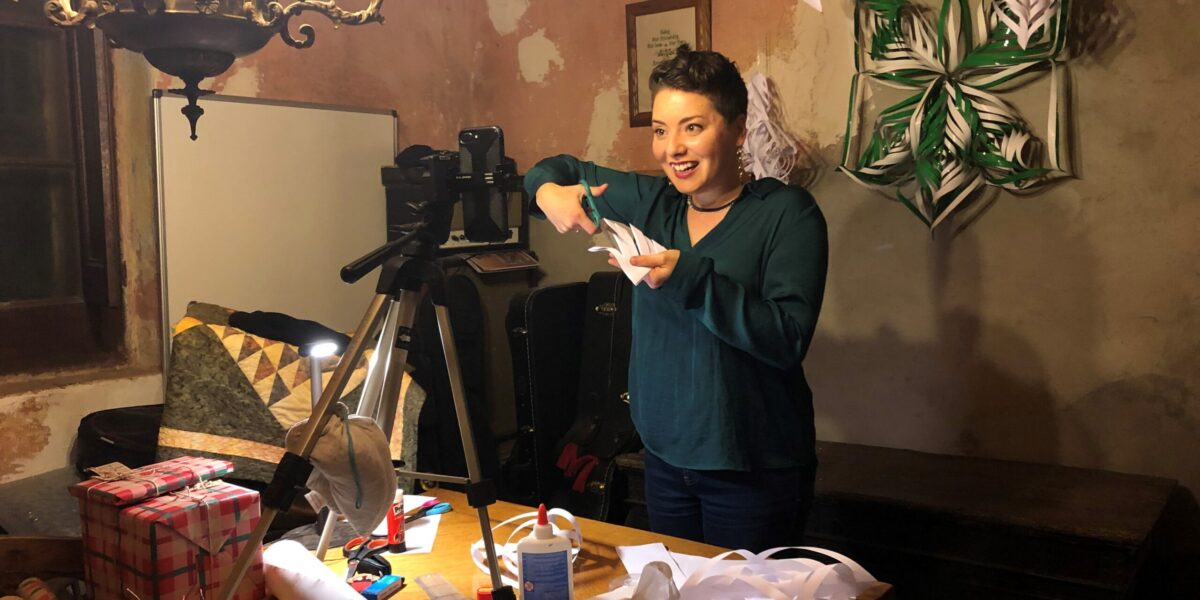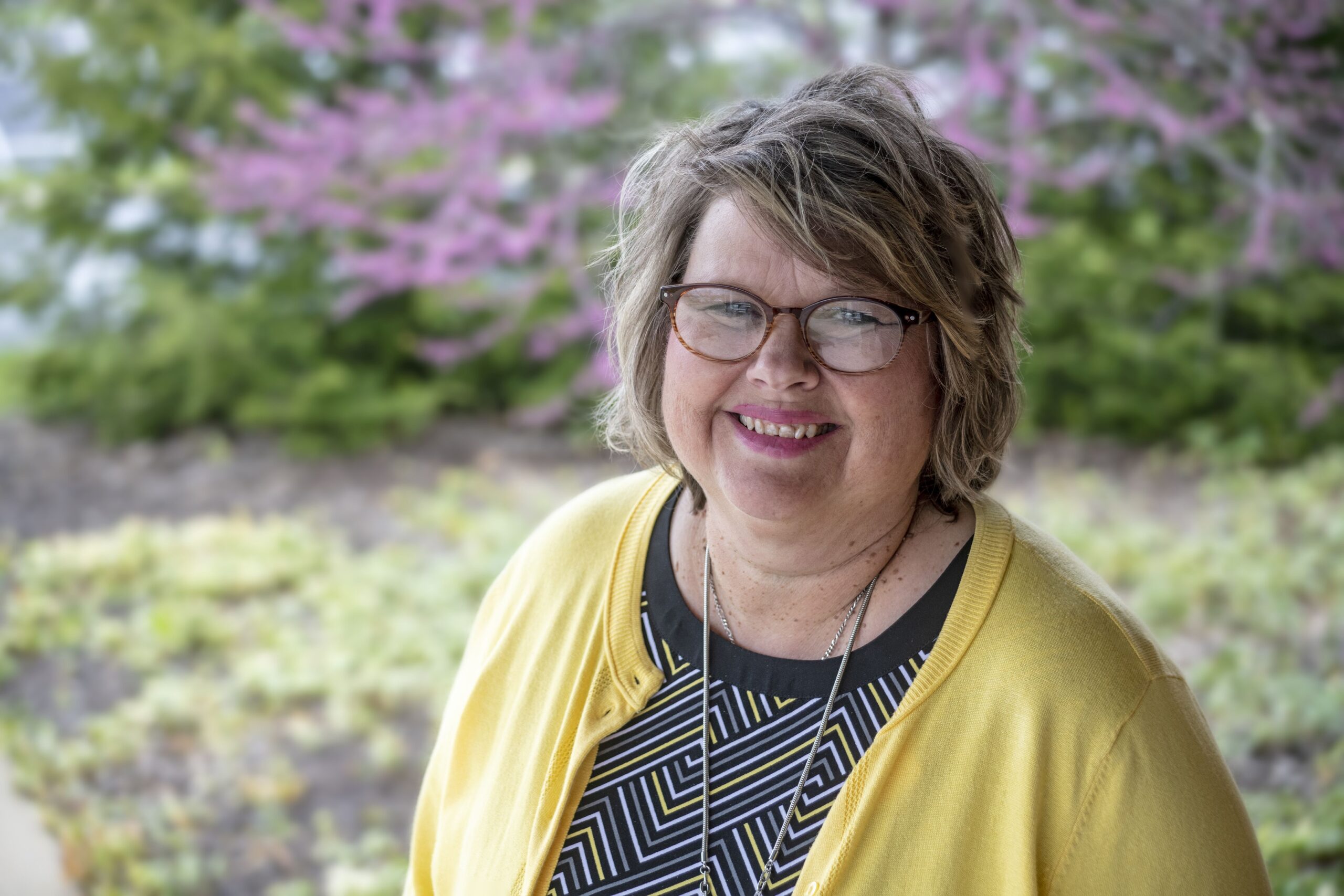Note: To mark the first anniversary of the COVID-19 pandemic, Mennonite Mission Network writers sought reflections from global partners, workers and the agency’s Church Relations department. Below is the second in a series of reflections on how the pandemic has invited them to receive God’s grace in pivoting into new ways of doing ministry and relating to their families and communities. Read the first in the series Pandemics and the ways of God.
In March 2020, the Mennonite Mission Network church relations team suffered a long list of rapid losses evoked by the COVID-19 pandemic lock down: no work in the office, no travel, no spring retreat.
The close-knit group suddenly felt disconnected and unsure. They wondered: If we are feeling this way, how must pastors and church leaders around the globe be feeling?
"We felt we had to do something," said Sandy Miller, senior executive for Mission Network’s Resource and Mobilization division and church relations team leader. "It didn’t take long for us to engage in some brainstorming that led to our creating the online Hope Series."
The Hope Series included interviews and Scripture readings, as well as prayer in English and Spanish every week. A Thursday segment that checked-in with international partners, Hope Around the World, soon joined the series.
"We quickly realized that our U.S. constituents were also wanting to hear about how their brothers and sisters around the globe were doing in the pandemic," Miller continued. "That led to the creation of Hope Around the World, which statistics show became our most watched Facebook post."
Many global mission workers and partners are also discovering how powerful of a conduit technology can be for connecting with others during the pandemic. For example, in Mexico, Rebeca González Torres and Fernando Pérez Ventura, coordinators of Comunidad de Instituciones Teológicas Anabautistas (CITA, Community of Anabaptist Theological Institutions), recently reported how they are reaping the benefits of cyberspace.
"Through our virtual platforms, we are reaching distant places — saving time, money and effort, opening an opportunity so everyone can obtain resources and meet brothers and sisters from different countries and contexts, enriching their ministries with a range of possibilities," Pérez Ventura, wrote in a recent email. "The pandemic will end, and we will surely continue on this virtual path; we pray that God will give us all wisdom to make good use of all these cyber resources."
In 2017, prior to the pandemic, they began promoting online theological education through CITA. "In a short time, online theological education has gained relevance and acceptance," Ventura wrote. "Something that in the past was very difficult and for which there was great resistance, now flows in a dynamic and surprising way."
Jae Young Lee and Karen Spicher, mission associates in Namyangju, South Korea, recently sent an email chronicling how using online resources in their work at Peace Building in Namyangju, is birthing new relationships.
"We are doing more online meetings, lectures and workshops," Spicher wrote. "Though this limits the level of personal connection, it also increases participation of people from far away and saves energy and time for transportation. We don’t have as many visitors at Peace Building as before, but when people do visit, it feels special."
Their church, the Grace and Peace Mennonite Church, has also adjusted to meeting by Zoom on Sunday mornings. "Gathering for online worship and sharing has enabled Sundays to be more like Sabbath than they were before, with more time to rest at home," she wrote.
In a recent email, Brian and Noelia Fox, Mission Network mission workers in Burgos, Spain, reported that the pandemic has forced their church community to grow in new ways. Brian Fox described how media-savvy young men in their church created online services.
"The response of 500 views on some of our online services was much greater than we had expected," Brian Fox wrote. "We soon realized that we need to continue this new ministry in the future to reach out to more people."
Alisha and Josh Garber, mission workers in Barcelona, Catalonia, sent an email describing how their church’s move to a pre-recorded format has led to more intentionality and creativity in their worship. "It has led our church to reach out beyond participants who come to church on Sundays," Josh Garber wrote. "That includes other Christians, folks in our non-church lives, and folks in the neighborhoods."
Alisha Garber, along with their Ministry Support Team, is also developing an online "Sip and Paint" activity. Sharon Norton, Mission Network’s co-director for Africa and Europe, is thrilled with this development. "Alisha will instruct participants on how to paint a basic scene, while they sip on their drink of choice," Norton wrote. "While they paint, Alisha will share about the ministry in Barcelona and how their family is dealing with the ongoing COVID-19 situation. The hope is that people will enjoy this kind of creative outlet, while being inspired about the ministry."
David Lapp Jost, mission worker in Germany wrote, "Many people who previously didn’t think of video meetings as an effective tool now do. I think this has terrific potential to save time, money and environmental impacts in some cases, though in others, in-person contact is still clearly important. I expect I´ll be using Zoom frequently for a long time."
Even as the church relations team is eager for a return to safe face-to-face visits with pastors and church leaders again, Miller said that technology has, in some ways, created more equity in how the team does its work.
"We’ve discovered that the expense of gathering people in one location for events isn’t always necessary," she said. "For example, online training, like Sent Network and Missional Discipleship Initiative —originally created for U.S. constituents — has allowed those initiatives to become global.
"We are witnessing how the Holy Spirit is moving people to reach out for connectedness and discovering we can, perhaps, do it virtually in bigger and better ways," Miller said. "We’ve bridged the very real distance of miles by joining together virtually, and good things are happening!"








